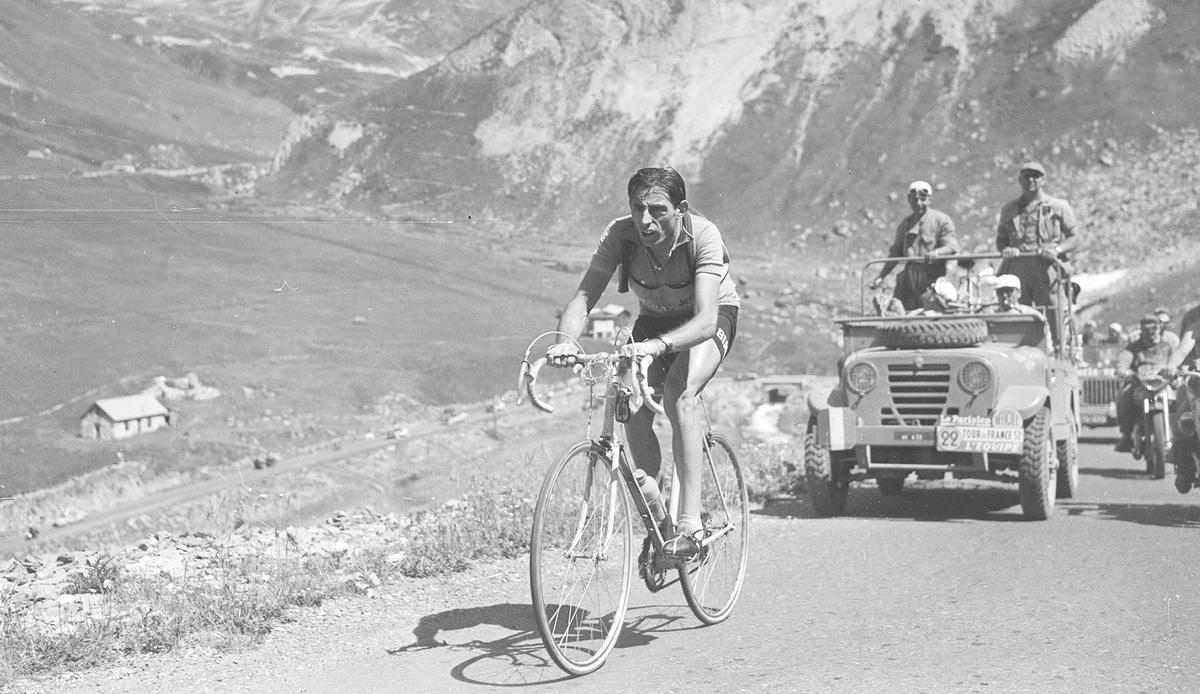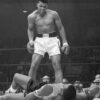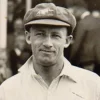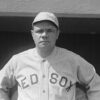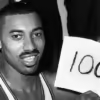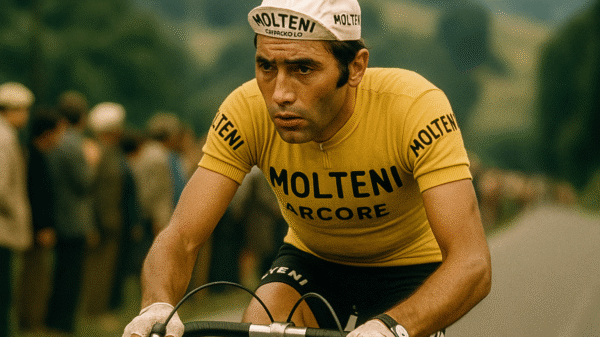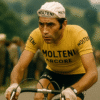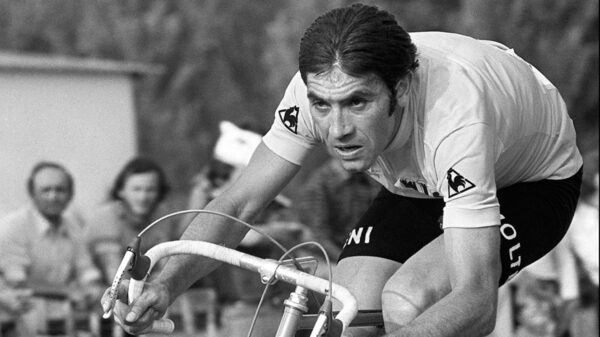Table of Contents
Early Life and Rise to Stardom
Fausto Coppi, born on September 15, 1919, in Castellania, Italy, was destined to become one of the most legendary figures in cycling history. Growing up in the rural Piedmont region, Coppi developed an early passion for cycling. His humble beginnings on the rugged Italian countryside honed his resilience and endurance. At just 15 years old, Coppi started working as a butcher’s delivery boy, a job that allowed him to build stamina and a deep-rooted love for the bicycle.
Coppi’s breakthrough came when he won the Giro di Lombardia in 1946, marking the start of a career that would change the world of cycling forever.
Dominance in Professional Cycling
Fausto Coppi’s professional career was defined by unparalleled dominance and revolutionary racing tactics. His ability to conquer both mountain stages and time trials set him apart from his contemporaries. Coppi won the prestigious Giro d’Italia five times (1940, 1947, 1949, 1952, 1953) and claimed victory in the Tour de France twice (1949, 1952).
Coppi’s racing style was characterized by aggressive attacks in the mountains and unmatched endurance. His remarkable performance in the 1949 Tour de France, where he won both the Tour and Giro in the same year, earned him the nickname “Il Campionissimo“—the champion of champions.
Rivalry with Gino Bartali
One of the most captivating aspects of Coppi’s career was his fierce rivalry with fellow Italian cyclist Gino Bartali. Their rivalry transcended sports, symbolizing a divide in post-war Italy—Bartali representing tradition and religious conservatism, while Coppi embodied modernism and progressivism.
Despite their rivalry, the two shared moments of mutual respect, most notably during the 1952 Tour de France, when Bartali handed Coppi a water bottle during a grueling mountain stage. This iconic gesture became a symbol of sportsmanship and unity.
Innovations and Training Regimens
Fausto Coppi revolutionized professional cycling with his innovative training methods and nutritional strategies. He was among the first cyclists to understand the importance of diet, rest, and specialized training. Coppi introduced altitude training and paid meticulous attention to bike mechanics, often working closely with his mechanics to optimize performance.
His pioneering use of derailleur gears, lighter bicycles, and aerodynamic techniques gave him a significant competitive edge. Coppi’s meticulous approach to training and technology set new standards in the sport.
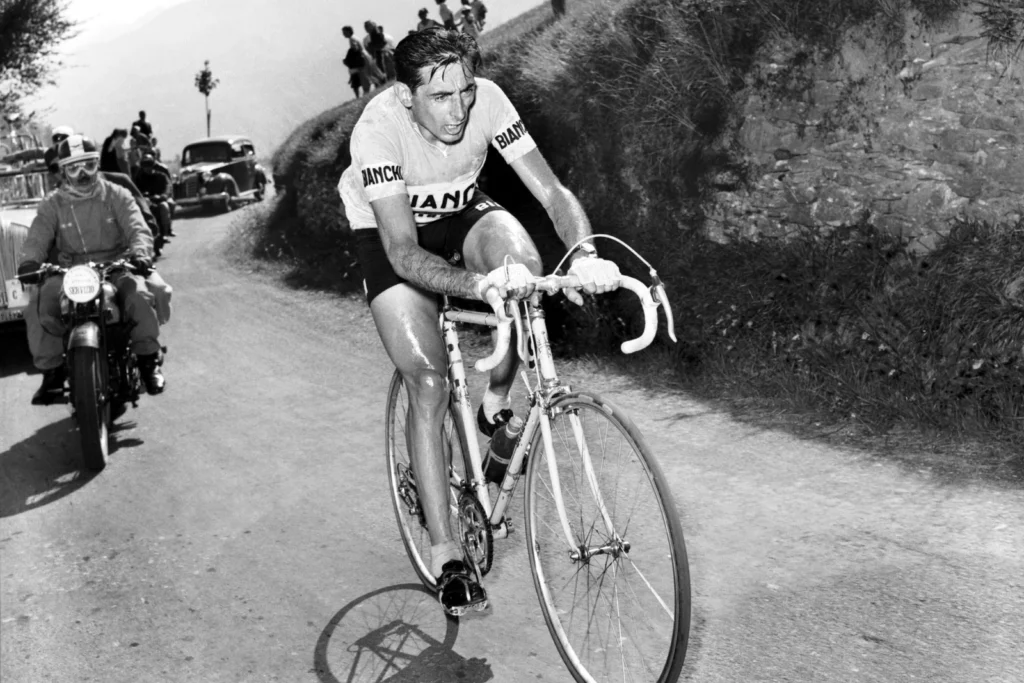
Challenges and Personal Struggles
Coppi’s life was not without challenges. His career was interrupted by World War II, during which he served in the Italian army and was later captured as a prisoner of war in North Africa. This hiatus could have ended his career, but Coppi returned stronger, resuming his dominance in the post-war era.
In his personal life, Coppi faced public scrutiny due to his controversial relationship with Giulia Occhini, known as the “White Lady.” Their affair, during a time when divorce was socially unacceptable in Italy, led to widespread media attention and legal challenges, tarnishing his public image but never overshadowing his athletic achievements.
Legacy and Impact on Cycling
Fausto Coppi’s influence on cycling is immeasurable. His relentless pursuit of excellence, combined with his innovative spirit, transformed competitive cycling. Coppi’s achievements paved the way for future generations of cyclists to approach the sport with a scientific and strategic mindset.
His legacy lives on through countless memorials, races named in his honor, and the enduring admiration of cycling enthusiasts worldwide. The Giro dell’Emilia and the Trofeo Laigueglia are just a few of the races that celebrate his lasting impact.
Tragic End and Enduring Memory
Tragically, Fausto Coppi’s life was cut short when he contracted malaria during a trip to Burkina Faso and passed away on January 2, 1960, at the age of 40. His untimely death shocked the world and left a void in the cycling community.
Despite his premature passing, Coppi’s spirit continues to inspire. His story is a testament to resilience, innovation, and the unbreakable human spirit. Statues, museums, and annual races commemorate his contribution to the sport, ensuring that his legend endures.
Conclusion
Fausto Coppi remains a beacon of excellence in the world of cycling. His groundbreaking approach to the sport, coupled with his unmatched achievements, has immortalized him as a true icon. From his fierce rivalry with Gino Bartali to his innovative training methods, Coppi’s legacy continues to shape modern cycling.
His story is not just one of victories but of a relentless quest for greatness, making him an enduring symbol of ambition and perseverance.


